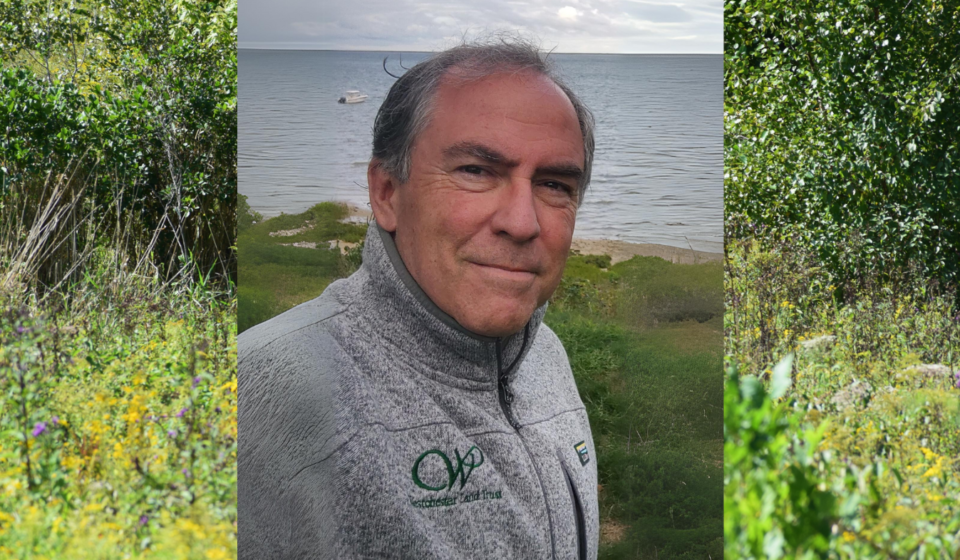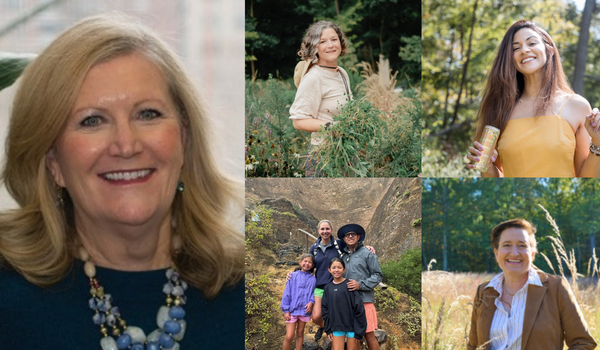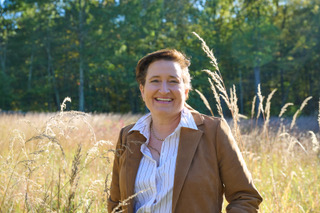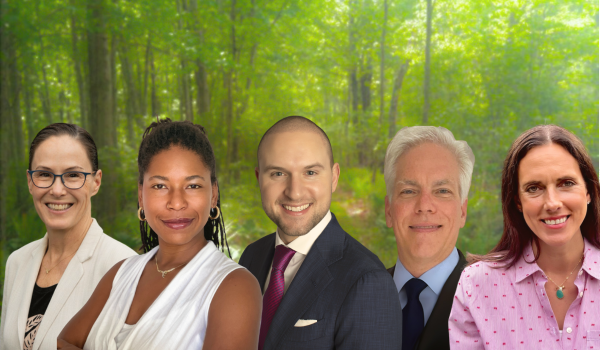
Bedford Hills, NY—Westchester Land Trust (WLT), a nationally accredited land conservation nonprofit headquartered in Bedford Hills, NY, announced that Dave Tobias, of Rhinebeck, has joined its Board of Directors. Tobias is an accomplished conservationist whose career spanned 28 years at the NYC Department of Environmental Protection (NYC DEP) and seven years with The Nature Conservancy. WLT’s Board of Directors is led by Bruce Churchill, chairman, Nanette Bourne, vice chair, Joe Edgar, treasurer, and Amy Ferguson, secretary. The Advisory Board is co-chaired by George Bianco and Tatiana Kaletsch.
Tobias will work alongside WLT’s staff, Advisory Board, and Board of Directors to support land protection and stewardship, harnessing his vast experience conserving land throughout the region.
“Dave is a longtime friend of Westchester Land Trust and we are excited to add his land protection expertise to our team,” said Bruce Churchill, chairman of WLT’s Board of Directors. “Throughout his career, he has served as a shining example of how to do conservation right. His presence on our Board will help us increase the pace and impact of our work.”
In his position as the director of NYC DEP’s Land Acquisition Program, Tobias oversaw all land conservation throughout NYC’s 2,000 square-mile watershed outside the five boroughs, protecting over 158,000 acres. His efforts were part of comprehensive long-term programs to protect drinking water and public health for over nine million people, and its success has helped NYC to avoid the multi-billion-dollar cost of constructing a water filtration plant.
Tobias was thrilled to join the land trust’s board, saying “It is an honor to serve such an impressive organization alongside such dedicated staff and volunteers; land trusts serve such a vital role in protecting open space, water quality, farms, and forests. Westchester Land Trust is an outstanding organization, and I hope to help WLT succeed in protecting our precious non-renewable resources for all future generations.”
At NYC DEP, Tobias developed numerous initiatives, including NYC’s first conservation easement program, flood buyout programs, farm and forest easement programs, and a riparian buffer acquisition program. He also helped to develop stewardship programs to manage natural resources and public access for more than 100,000 acres of land. Prior to his tenure at NYC DEP, Tobias worked for The Nature Conservancy Lower Hudson and Eastern New York chapters, where he managed land acquisition and conservation programs throughout southern New York State.
Nanette Bourne, vice chair of WLT’s Board, noted Tobias’s experience protecting land across the region as a valuable addition to the organization’s leadership, saying “Dave has led some of the most significant land conservation projects in southern New York over the past three decades. He understands the challenges and opportunities we face and why we must move swiftly and smartly to protect the lands that sustain our communities.”
Tobias will join other members of the Board of Directors and Advisory Board, which serve as the governing bodies of the organization, overseeing policies, fiscal and strategic planning, and supporting WLT’s commitment to creating a more sustainable, equitable, and healthy future for all.
Board of Directors
Bruce Churchill, chairman, Nanette Bourne, vice chair, Joe Edgar, treasurer, Amy Ferguson, secretary, David Ansel, Clifford H. Aronson, Christopher Boege, Dina Dublon, Tony Freund, Nancy Karch, Lee Manning-Vogelstein, Chantel McGee, Gary Perusse, Offutt A. Porter, Jennifer Schwartz, Norma Silva, Dave Tobias, Carine Verschueren, Bruce Ward, Diana Williams, and Matt Young
Advisory Board
George D. Bianco, co-chair, Tatiana Kaletsch, co-chair, Ellen Best, Ava Cohn, Brendon DeSimone, Annie Farrell, Jocelyn Ffriend, Jerome Goldstein, Susan Henry, David Michael, Sesh Murthy, Susan Oakley, Mike Rubbo, Karen Simons, Mike Surdej, and Michael Yellin
We acknowledge that our region is within the traditional territories of the Lenape people and that their culture and traditions live on today. We strive to incorporate the priorities from Indigenous Peoples and underserved community members into our land conservation practices.






